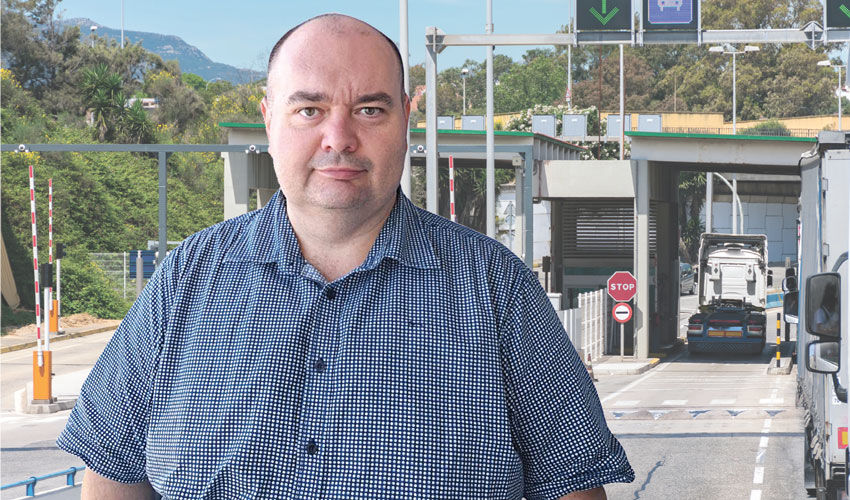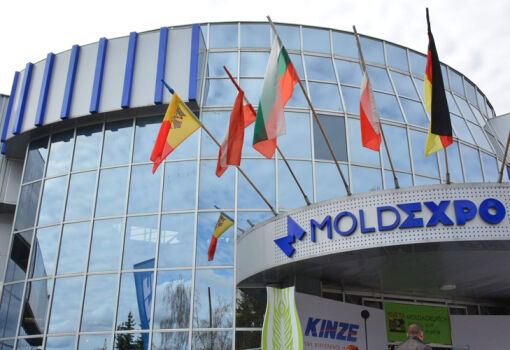
Eduard Syrbu
The amendment to the Customs Code, almost passed at the last session of the Parliament that finished its mandate, could have led to the creation of legal tax evasion schemes.
MP Alexandru Trubka prepared amendment No. AT 34/03-140 to the Customs Code, which introduced a new Article 3271 with the following content: “Special provisions on termination of the customs regime.
(1) Compensation goods in the form of fuel or energy products obtained under the regime of processing in the customs territory shall be exempt from excise duty when placed under the customs regime of importation. If the obligation to pay excise duty arises when the compensatory goods are exported from the tax warehouse, it shall be settled in accordance with the procedure established by Article 125 of the Tax Code No. 1163/1997.
(2) If the goods referred to in paragraph (1) are placed under the customs regime of import, the amount of VAT paid for the goods placed under the customs regime of processing on the customs territory shall not be refunded, and the Customs Service shall calculate the customs debt as the difference between the amount of VAT paid for the goods placed under the customs regime of processing on the customs territory and for the goods placed under the customs regime of import”.
The wording of this amendment is ambiguous and blurred, believes Eduard Syrbu, legal expert of NGO LEX-ECON Consulting, Master of Law. First of all, he notes a number of shortcomings related to the low level of legislative literacy applied in the formulation of the new article.
First, the use of undefined legal concepts in national legislation (“compensatory goods” instead of “processed products”, “import regime” instead of “release for free circulation”, etc.).
Second, the inclusion in the customs regulation of a provision on tax warehouse, which is not a condition for placement and processing of goods under the customs regime of processing on the customs territory.
Third, wrongful inclusion of excise tax exemption in the Customs Code, although it should have been included in Articles 124-125 of the Tax Code;
And, fourth, the conceptual contradiction of this exemption with the provisions of paragraph 6 of Article 124 of the Tax Code.
However, the main risk lies in the establishment of the excise tax exemption.
According to Article 326 of the Customs Code, the regime of processing on the customs territory allows importing foreign goods without paying import duties for processing on the territory of our country. The processed products obtained as a result of their placement under this regime are subject to exportation from the country or, at the discretion of their owner, can be released into free circulation on the territory of Moldova. When placing the goods on the market, the importer is obliged to declare them under the same conditions as if they were imported directly from abroad. Thus, there is no difference in taxation and application of non-tariff measures when importing foreign goods from abroad and the same goods already produced in the country from foreign raw materials.
An important aspect is that processing of goods is a right and not an obligation. Thus, an importer may place goods under this regime without actually processing them and without being obliged to keep the goods under customs protection for a minimum period of time.
The legal rule authorized by proposed Section 3271 of the Customs Code exempts from excise tax any quantity of fuel initially placed under the regime of processing in the customs territory and then imported into the customs territory, regardless of the degree of processing, the status of the importer, the quantity of the goods, or other important factors. As a result, this norm may lead to unlimited fraud with the law.
This could occur as follows. Suppose that a company purchases a certain amount of A95 gasoline abroad and imports it into the territory of the Republic of Moldova. Upon entering the country, the business entity declares that the gasoline will be “processed” or transformed to improve its quality and produce A98 gasoline. From a technical point of view, this represents a minor adjustment of the octane number by adding chemical additives or blending with bioethanol. (This is already done by almost all fuel importing companies).
In fact, the product may remain identical, or the difference in quality may be only formal. After that, the company declares the product as “processed” and submits a customs declaration for release into free circulation, but without paying excise duty, applying the exemption provided by Article 3271 of the Customs Code. As practice shows, such operations take place very quickly.
“Given that excise duty on petroleum products is one of the most important sources of state budget revenues, the losses caused by this amendment could have been huge,” the expert notes. – At the same time, the budget fraud scheme would have been absolutely legal, and customs authorities were obliged to strictly comply with the provisions of the legislation”.
If the amendment is finally adopted, the consequences could be significant. These are serious losses of the state budget in favor of interest groups that know how to exploit gaps in the legislation; the market would have become extremely unfair, as bona fide companies would have to compete with importers who do not pay taxes and import duties; the state would indirectly encourage tax fraud by legalizing mechanisms that undermine the principles of fiscal fairness and proportionality; controlling authorities, including the Customs Service and the Tax Inspectorate, would be deprived of the opportunity to challenge or block these transactions, as the government would be unable to prevent or block them.
The amendment safely passed all parliamentary committees. Only government lawyers recognized the dangers hidden in it. As a result, it was stated in an executive branch memo that it should be moved from the Customs Code to the Tax Code and reworded.
As a result of these actions, in the Tax Code in Article 125, paragraph 23 appeared as follows:
“With regard to excisable goods placed under the customs regime of free circulation (import), previously placed under the customs regime of processing on the customs territory, excise duty is calculated and paid when the goods are placed under the customs regime of free circulation (import), while the owner of the tax warehouse is exempt from the obligation to calculate excise duty when the goods are shipped (exported) from the tax warehouse.”
This wording has nothing in common with the original text.
It is also interesting that in the draft Law on Amendments to the Tax Code No. 1163/1997 and other normative acts, approved at the meeting of the Government of June 18, 2025 by protocol decision No. 21.25.2025, these amendments (neither preliminary nor final) are not present at all. That is, the mentioned amendment by Deputy Trubka appeared somewhere before the third reading, which confirms the assumption that it was an attempt to “push through” someone’s specific interests.



